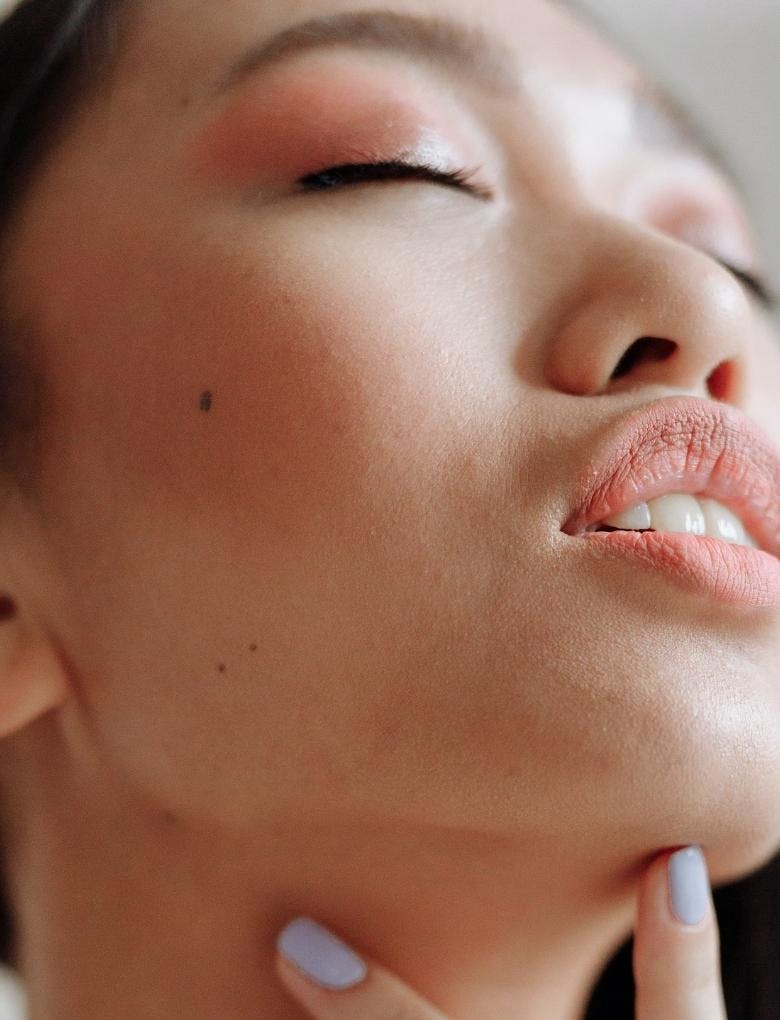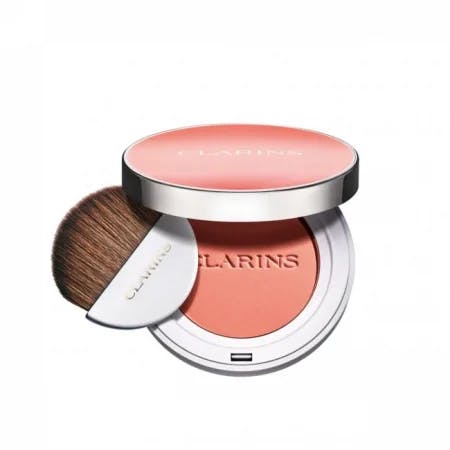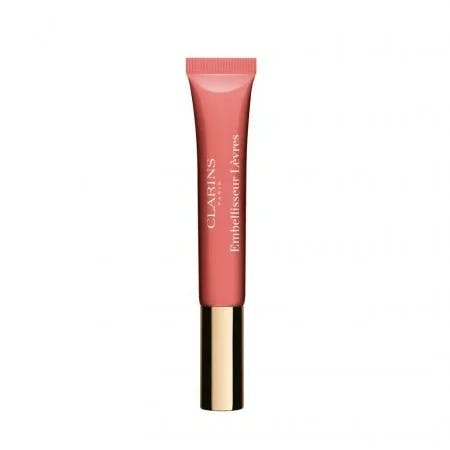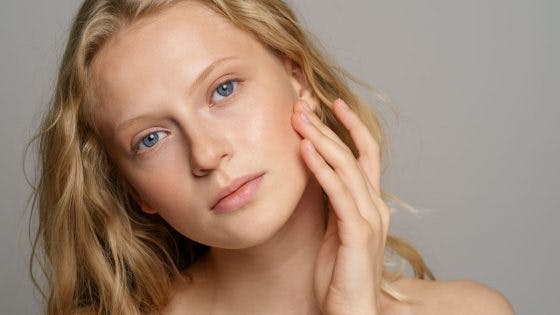Exploring Blush Types for A Healthy Glow
7 minutes read
When it comes to make-up, blush holds a special place in every beauty enthusiast’s heart. Why? Without fail, it adds a touch of colour, warmth, and radiance to the complexion, giving you that coveted healthy glow. But whether you’re a make-up novice or a seasoned pro, understanding the different types of blush and how to apply them the right way is essential for achieving a flawless look. Here, Beauty Daily explores the different types of blush, how to use them and choose the correct one for your skin type and desired finish.

Powder blush
Powder blush is a classic choice that has stood the test of time. It offers a vast range of shades and finishes, from matte to satin and shimmer, and is also suited to a wide range of skin types. In particular, powder blush is perfect for oily and combination skin as it helps control shine and tends to last longer on these skin textures. With a powder blush, you can achieve a natural, velvety finish that blends seamlessly into your skin.
Applying powder blush
When it comes to applying powder blush, placement and technique are key. Use a fluffy blush brush and tap off any excess product before applying. Smile and lightly dust the blush onto the apples of your cheeks, blending it upward towards your temples for a youthful flush.
For a high-quality powder blush option, check out Clarins Joli Blush, £29, which has a skin-loving formula containing hazelnut oil and is available in various shades to suit every skin tone.

Expert tip: “The positioning of blusher on the cheeks can vary slightly for different looks,” says make-up artist Amba Logan. “For a natural flushed glow, stick to the apples of the cheeks – which, as a rough guide, is the more padded area on the peak of your cheekbone. As we age, the fat pads in our face drop down slightly, so jumping your blusher slighter higher than where your ‘apples’ naturally sit can lift the whole face,” she adds. Remember to keep your blusher from getting too close to the eye, or it can cause the eye area to look puffy.
Read Next: Hacks the Beauty Daily editors swear by
Cream blush
If you prefer a dewy, luminous finish, cream blush should be your go-to. It offers a natural, skin-like appearance and is particularly well-suited to dry or mature skin types thanks to its blendable, melt-into-the-skin texture. Cream blushes come in different finishes, ranging from satin to sheer, and can be applied with fingers or a brush for a fresh and healthy-looking flush. “Cream blush is a great all-rounder and is especially good for drier, dehydrated skin. It likes to be tapped in with fingers, and if you want to add extra longevity, you can sweep over a creamy or gel formula with a powder blush,” Logan advises.
Applying cream blush
To apply cream blush, use your fingertips or a stippling brush for a seamless blend. Gently tap the blush onto the apples of your cheeks, then blend it outwards towards your hairline. Remember to start with a small amount and build up the intensity gradually.
Expert tip: “If you are layering several blush products, always remember to use your creamy or liquid formulas first, followed by cream formulas, and then powders to finish. Make sure not to apply creamy formulas over powder as it will cake and remove your base from the skin, leaving you looking patchy and uneven,” Logan says.
Liquid blush
Liquid blushes offer a lightweight, buildable formula that gives a natural, lit-from-within glow. They are suitable for all skin types, including oily and sensitive skin, and their fluid consistency makes them easy to blend, giving your cheeks a subtle pop of colour.
Applying liquid blush
To apply liquid blush, use a small amount and dot it onto the apples of your cheeks. Blend it with your fingertips, a sponge, or a stippling brush. Work quickly as liquid blushes tend to dry faster.
Gel blush
Gel blushes offer a unique formulation that adds a fresh, dewy finish to your make-up look. They contain water and can be applied under or over your foundation. However, if you choose to use it over your base, be sure to pat it carefully, as the liquid formula can remove your foundation and break down the foundation. Gel blushes suit all skin types, providing a sheer and translucent colour payoff.
Applying gel blush
To apply gel blush, use your fingertips or a brush to gently blend it onto the apples of your cheeks. Start with a small amount and build up the colour if needed. Due to their gel-like consistency, they blend effortlessly into the skin, giving you a natural and healthy flush.
“A discrete touch of blush across the bridge of the nose gives a bright and fresh look.”
Read Next: The best moisturising tints to perfect, cover and make skin glow
Stain blush
Stain blushes offer a long-lasting, fade-resistant formula that provides a sheer wash of colour. They are perfect for those who want a subtle, natural-looking flush that lasts throughout the day and are ideal if you want to add some buildable colour to your cheeks. Stain blushes are generally suitable for all skin types, including oily and combination skin, and they create a soft, second-skin effect, giving you a fresh and youthful appearance.
Applying stain blush
To apply stain blush, dot a small amount onto the apples of your cheeks and blend it with your fingertips or a damp blending sponge after you have applied your foundation. Start with a light layer and gradually build the colour until you achieve your desired intensity. The key is to work quickly and blend well to avoid any harsh lines.
Lip balm blush
If you want to try something different or don’t have liquid or cream blushes to hand, a tinted lip balm can be a great substitute. Lip balm blush offers a subtle and natural-looking flush while providing hydration to your skin and is generally suitable for all skin types, including sensitive skin. Simply choose a lip balm with a sheer tint and apply it to the apples of your cheeks for an effortless glow. It can be slightly tacky – and where-off quickly, so be prepared to reapply frequently.
Try: Clarins Lip Perfector Glow, £21, a two-in-one lip balm and tinted highlighter, perfect for achieving glowy cheeks.
Applying lip balm as blush
Using your fingertips, apply a small amount of lip balm to the apples of your cheeks and blend it outwards. The emollient texture of the lip balm makes it easy to blend and creates a natural, dewy finish.
If you’re interested in trying a lip balm as a blush, try the Clarins Natural Lip Perfector, £21, which comes in various shades and provides a nourishing and hydrating tint.

Make-up artist tips on how to flawlessly apply blush
Here are some of Logan’s other top tips on how to achieve a seamless blush application:
- Pink blush makes a blue and green eye pop, with peachy tones adding warmth to brown eyes and olive skin tones.
- Gels and tints contain water and can be applied under or over your foundation or make-up base. If you use it over the top, pat carefully as the liquid formula can remove your base.
- Illuminating blushes work well higher on the cheekbone, where the light catches the high points of the face, giving highlights in the right areas. Matte powders are better placed lower down to create a contoured cheekbone.
- Try warm deeper coral and bronze shades of blush in the summer for a sun-kissed glow.
- If you have a fair skin tone, try using a dusting of light peach-hued blush.
- For deeper skin tones, opt for a berry shade of blush.
- For a natural ‘no make-up, make-up’ blush look, select your blush colour by gently pinching the cheeks, and choose a blush colour that mimics your natural flush that appears.
- If you get too adventurous and apply too much, use your foundation or concealer brush to blend out the edges, using whatever is remaining on the brush to soften it out.
- Team bronzers and browny tones with the best coral lipstick shades to really brighten up the face.
Read Next: How to apply foundation like a pro
Sign up for our newsletter
We will keep you in the loop for special offers, exclusive gifts and product news.

